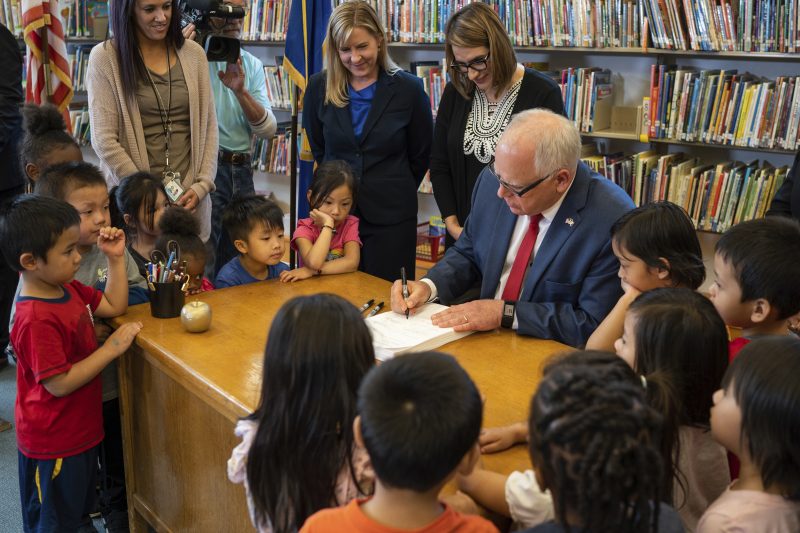In a surprising move that has sparked debate and controversy in Minnesota, Governor Tim Walz has been accused of moving schools to the left by opposing vouchers while simultaneously increasing funding for schools. This decision has raised questions about the direction of education policy in the state and the impact it will have on students, teachers, and families.
Opposition to school vouchers, which are government-funded scholarships that allow students to attend private schools, has been a cornerstone of Governor Walz’s education policy. Critics argue that vouchers divert public funds away from public schools and towards private institutions, leading to increased segregation and inequality in the education system. By taking a firm stand against vouchers, Governor Walz has signaled his commitment to maintaining a strong and equitable public education system in Minnesota.
At the same time, Governor Walz has made it a priority to increase funding for schools in the state. This decision comes at a critical time when many school districts are facing budget constraints and struggling to provide adequate resources for students. By allocating additional funds to schools, Governor Walz aims to support teachers, improve student outcomes, and ensure that all children have access to a high-quality education, regardless of their background or zip code.
The combination of opposing vouchers and increasing funding for schools has drawn both praise and criticism from various stakeholders. Supporters applaud Governor Walz for prioritizing public education and investing in the future of Minnesota’s children. They argue that by rejecting vouchers and providing additional resources to schools, Governor Walz is taking a stand for equity and excellence in education.
Critics, however, contend that Governor Walz’s stance on vouchers will limit school choice and deprive families of the opportunity to choose the best educational options for their children. They argue that vouchers can help low-income families access high-quality private schools that may better meet their children’s needs. By opposing vouchers, Governor Walz may be preventing these families from exercising their right to choose the education that is best for their children.
In conclusion, Governor Tim Walz’s decision to oppose vouchers while increasing funding for schools in Minnesota reflects his commitment to creating a strong and equitable public education system. While his actions have sparked debate and divided opinions, it is clear that Governor Walz’s priority is to ensure that all children in Minnesota have access to a high-quality education that will prepare them for success in the future. The ongoing discussions surrounding education policy in Minnesota will continue to shape the direction of the state’s education system and its impact on students, teachers, and communities.
